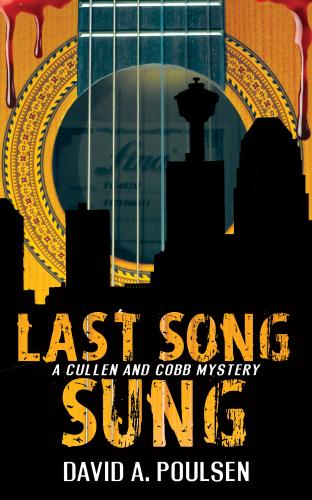What was more likely, of course, was that it had been a small animal that I’d seen, or that animal’s shadow, thus rendering my evening’s excursion utterly unproductive.
Nevertheless, I wanted to be thorough. I again cast the beam of the flashlight around the area behind the garage. Saw nothing. Then I went over the ground in smaller pieces, moving the light and my vision back and forth across the alley … again, seeing only gravel, dirt, and a couple of garbage cans against the fence. They, too, would be invisible from Kennedy’s vantage point, and I stepped closer to them, thinking, though not with great certainty, that whatever I had seen had to have been in this general area.
The garbage cans, their grey metal shining when I splashed the light on them, were on a small wooden stand maybe a foot off the ground. I scanned the area again and saw nothing … except for a single piece of paper, clearly something that had escaped the confines of the trash bins. I picked it up and stuffed it in my pocket, if for no more reason than to avoid returning from my wild goose chase completely empty-handed.
One last look around, splaying the light first here, then there. Nothing. Not even a second scrap of paper. I made my way back up the alley to the street and retraced my steps to Kennedy’s house. Once inside, I returned the flashlight to the upstairs windowsill and out of curiosity rewound the tape to see what I had looked like prowling the lane behind the murder scene. I first saw flashes of light created by my placing my hand over the flashlight, then removing it. Then I was on the screen, moving slowly, clearly visible despite the darkness and shadows of the alley. I rewound the tape, watched it again, and was surprised to note that as dark as the alley had been, and even though I was never in the flashlight’s beam, I was recognizable — a testimony, I supposed, to the quality of Kennedy’s equipment. Watching the tape, I realized my expedition had, in fact, borne some fruit. Going down there had been useful in terms of providing a frame of reference for what I was seeing when I looked through the viewer of the camera.
And having provided at least a little justification for my nocturnal prowl, I reset the tape and headed off to bed. I was asleep in seconds, but it wasn’t a peaceful night. I woke several times, tossed and rolled around the bed, and dreamed of shadows.
Unpleasant shadows.
Six
Cobb arrived just after nine and came, as he always did, bearing gifts: Starbucks coffee and bakery items that had definitely not come from Starbucks.
Before we sat down to coffee, I showed him around the place, augmenting the tour with commentary explaining Kennedy’s way of conducting the surveillance and recording of what he observed. Cobb was silent during the tour of the two rooms, nodding occasionally but offering no comment until we were sitting at the kitchen table, coffee poured and butterhorns warmed and buttered.
“He hasn’t spared any expense,” Cobb commented after a sip of the Pike Place.
I nodded. “State-of-the-art equipment, and up to date, meaning he must upgrade fairly regularly.”
Neither of us spoke for a couple of minutes, but I noticed Cobb shaking his head.
“What?”
“Damned sad,” he said in a soft voice. “You spend virtually every hour of your life staring at two places; you spend all your money making that possible, and the first break you take from it in over twenty years is to be with your ex-wife while she’s dying. I’d say that’s pretty damned sad.”
Kyla had expressed much the same sentiment.
“Can’t argue that.” I broke off a piece of the butterhorn, chewed, and swallowed. I looked at Cobb. “You ever tell anybody about …” I looked around the room. “About this? About finding Kennedy? Any of the guys you both worked with?”
Cobb shook his head. “Didn’t think that would be a good idea.”
I nodded, and that was the end of conversation until we’d finished eating. I topped up the coffee with some I’d brewed before Cobb had arrived. He snapped open an old-school briefcase and pulled out a long manila file folder thick with pages.
I looked at the folder as he removed a long elastic band from around it. He extracted an envelope, reached inside, and pulled out several photographs. He didn’t say anything until he had them spread out on the table between us.
I scooched my chair around a bit to get a better look at them. Cobb pointed. “There are more, but this is a pretty good representation. This one,” he said, laying a hand on one of the photos, “is Jerry Farkash. He played guitar and occasionally keyboards. And that’s Duke Prego, who played bass; he had joined the group only a couple of months before they came west.”
Конец ознакомительного фрагмента.
Текст предоставлен ООО «ЛитРес».
Прочитайте эту книгу целиком, купив полную легальную версию на ЛитРес.
Безопасно оплатить книгу можно банковской картой Visa, MasterCard, Maestro, со счета мобильного телефона, с платежного терминала, в салоне МТС или Связной, через PayPal, WebMoney, Яндекс.Деньги, QIWI Кошелек, бонусными картами или другим удобным Вам способом.
